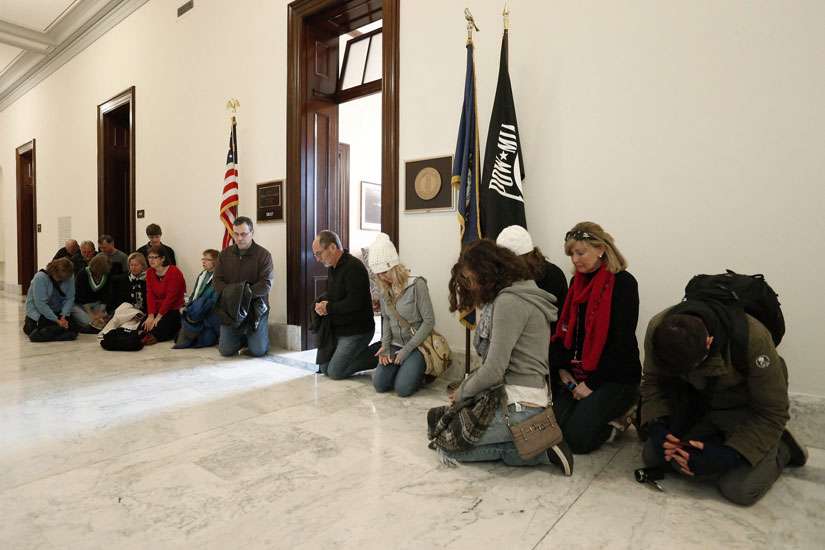The bill, called the “Pain Capable Unborn Child Protection Act,” would have banned abortions after the 20th week of pregnancy. But concerns over restrictive language on rape exceptions and a potential backlash from women and younger voters prompted some two dozen House Republicans, mainly women, to press party leaders to drop the bill.
The sudden reversal stunned abortion foes, who had expected to celebrate House passage of the bill as they gathered for their annual demonstration against the 1973 Roe v. Wade ruling by the Supreme Court legalizing abortion.
Instead, they were left wondering about the once-promising future of their agenda and organizing protests at the offices of House members they felt betrayed them.
“I am disgusted by this act of moral cowardice,” Russell Moore, spokesman for the Southern Baptist Convention, wrote, using unusually blunt language. “If the House Republicans cannot pass something as basic as restricting the abortion of five-month, pain-capable unborn children, what can they get done?
“The Republicans in Congress should come and explain this atrocity to the hundreds of thousands of people gathering here in the nation’s capital to march for life,” Moore said.
“Is it too much to ask the GOP to take a stand against infanticide?” popular author and speaker Eric Metaxas wondered on Twitter. “Did that not focus-group well for them? Do they have ANY core beliefs?”
“Honestly, what is the point of even having a Republican Party? I mean, seriously, what do we gain from it?” tweeted Steve Deace, a Christian radio host in Iowa who is a popular figure among religious conservatives.
The episode was especially vexing to religious conservatives because after years of battling a Democrat in the White House they are hoping to elect a Republican who would — in combination with a GOP-led Congress — finally clear the way for action to limit abortion and perhaps on other issues, such as gay rights.
But first social conservatives have to show party leaders that they are crucial to a Republican victory in 2016.
There were also efforts to highlight the passage of a House bill on a different, less contentious — but also far less sweeping — bill to prohibit federal funding of abortions.
Other GOP leaders tried to reassure Christian conservatives that the bill that was spiked this week could be tweaked and might return in another form.
In the meantime, several potential Republican presidential candidates, such as former Pennsylvania Sen. Rick Santorum and Louisiana Gov. Bobby Jindal, blasted the House move, and in the process, signaled they deserved the support of the crucial conservative Christian bloc.
Jindal called the move “outrageous” and said voters “elected a Republican majority to support the pro-life movement and champion conservative principles.”


